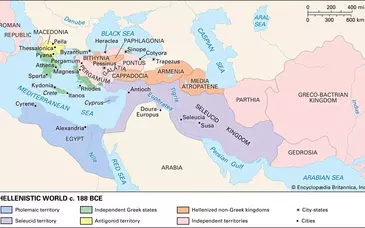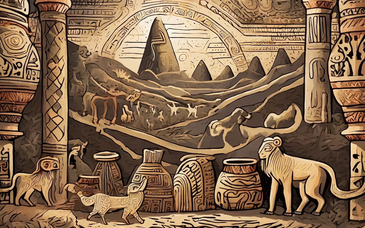In the realm of Greek mythology, a captivating tapestry unfolds, woven with the stories of mighty gods, benevolent goddesses, mythical creatures, and mortal heroes. Join us as we embark on an intellectual journey where students delve into the rich pantheon of Greek mythology, conducting research that unveils the extraordinary tales of divine beings and the heroes who walked among them.
- Gods of Olympus:
- Students delve into the majestic world of the Olympian gods, such as Zeus, Hera, Poseidon, and Athena, exploring their roles, powers, and fascinating backstories.
- Uncover the intricate family dynamics, divine alliances, and conflicts that defined the hierarchy of the gods on Mount Olympus.
- Glorious Goddesses:
- Research assignments shine a spotlight on powerful goddesses like Demeter, Aphrodite, Artemis, and Hestia, each embodying unique aspects of love, fertility, hunting, and hearth.
- Explore the stories that celebrate the strength, wisdom, and compassion of these divine feminine figures.
- Mythical Creatures and Monsters:
- Students venture into the darker corners of Greek mythology, investigating the origins and characteristics of legendary creatures like the Chimera, Cerberus, and the Sphinx.
- Analyze the symbolic significance of these mythical beings and their roles in heroic quests and ancient folklore.
- Heroes and Mortals:
- Unearth the tales of mortal heroes like Hercules, Perseus, and Theseus, who embarked on epic quests and faced formidable challenges, often with the aid of gods and goddesses.
- Examine the human qualities and virtues portrayed by these legendary figures and their enduring impact on Greek mythology.
- Comparative Analysis:
- Students engage in comparative analyses, drawing connections between the stories of gods, goddesses, creatures, and mortals.
- Identify recurring themes, archetypes, and moral lessons that emerge across various myths, reflecting the cultural values of ancient Greece.
- Creative Presentations:
- As a culmination of their research, students present their findings in creative and engaging formats, such as presentations, posters, or even dramatic reenactments.
- Encourage a holistic understanding of Greek mythology by fostering creativity and critical thinking.
The research assignment becomes a mythical odyssey for students, weaving together tales of divine intrigue, mortal heroism, and fantastical creatures. As they uncover the layers of Greek mythology, students not only enrich their knowledge of ancient culture but also develop valuable research and analytical skills. In this exploration of the mythical past, the timeless allure of Greek mythology comes alive, bridging the gap between ancient storytelling and contemporary learning.


